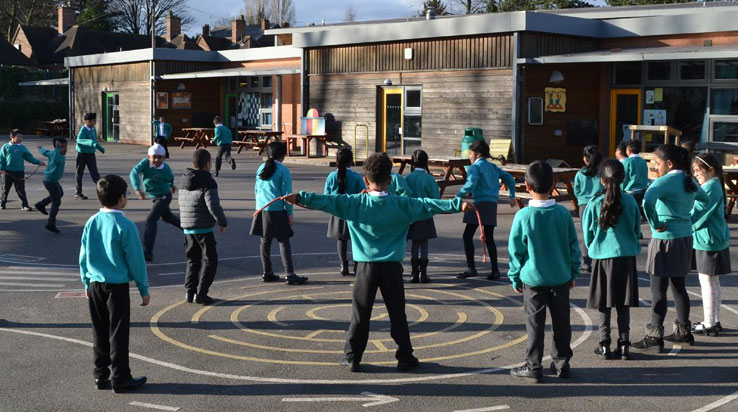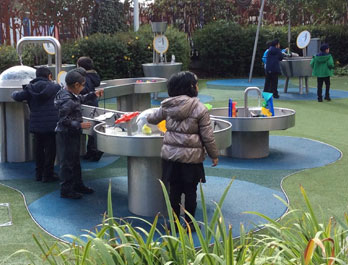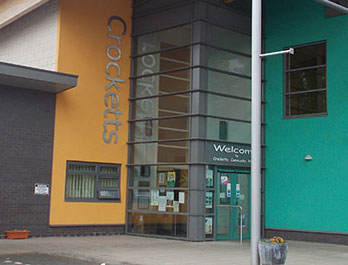
The Background
Crocketts Community Primary School is a two-form entry Primary School in Smethwick in the West Midlands. Staff and children are extremely proud of their diverse school community and are committed to developing a happy, nurturing and stimulating learning environment in which all children can develop their full potential. The proportion of pupils supported by the pupil premium funding is above average. With over 400 pupils and 100 staff, the school is a fantastic place to both learn and to work.
As well as employing a full-time Network Manager, the school has worked with RM as their technology partner for at least the last ten years. The school is built around RM’s identity management software product – RM Unify – and the RM team have supported the school with a recent server upgrade to the last CC4 on-premise technology, as well as with the latest implementation of Microsoft Teams across the school.
The Challenge
As a forward-looking school, Crocketts has always appreciated the value that technology can bring to the environment they are seeking to create. All staff are provided with laptops and tablet devices from the start, and Microsoft Teams and OneDrive were introduced for staff several years ago – allowing them to access and work on files remotely.
That said, they had stopped short from extending remote learning to their pupils – largely due to the work involved to introduce the necessary policies and procedures to ensure the highest levels of safeguarding protection. That said, they did use ClassDojo as a way to offer some work online.
It was therefore something of a wake-up call when the Prime Minister made his announcement in mid-March 2020, that schools would close to all but the vulnerable and children of key workers.
The Response
Fortunately, the school were made aware of the newly announced scheme from the Department for Education, whereby the Government would fully funded expert technical support for schools to set up an accredited digital education platform. In one fell swoop, here was a readymade solution to the school’s concerns about safeguarding… and all provided at no cost to the school.
"Where do I sign?! This new scheme from the DfE really was the perfect solution for what our school needed at that moment – we could introduce a proven technology that fitted with what we already had, it would be future-proofed, and all without the school having to find the money. A real win-win for everyone."
Darren Thorp, Network Manager
The process to apply was straight-forward, and the school selected RM as their implementation partner, and before they knew it, they had a fully functioning remote learning platform in place. It was based around their current RM Unify system, with the added functionality to synchronise their classes with the school’s existing MIS.
Given that staff at the school had been using MS Teams for a while, the transition was much easier than some other schools in the country found.
"I quickly created a guide showing pupils how to log on, printed it out and sent it home. I set up the new classes in MS Teams, added teachers and we were away."
Darren Thorp, Network Manager

Unlike some schools, as soon as MS Teams was set up, they moved straight to remote teaching – with teachers stood in front of a web cam, and pupils at the other end taking it all in.
Naturally, it was not all plain sailing. At the very beginning of lockdown they sent home a questionnaire to parents to understand what sort of technology they had at home. This identified the need for a dozen computer devices where their pupils’ families did not have their own. Fortunately the school had a number of Netbooks that were not being used whilst the school was closed, so with some changes to the set-up of each device, the addition of a guide on how to sign in, plus some legal words to cover the school against unauthorised use, another problem was resolved.
It was also true that the first few weeks created a number of challenges – children were logging on via different devices, all of which operated slightly differently and gave a slightly different experience for the user. For some, the whole process was alien to them, resulting in many telephone calls seeking help on logging on and accessing the systems – all of which were tough to address without being able to show people exactly what to do.
"One idea we had that worked really well, was that we offered some parents and pupils drop-in workshops. Whilst complying with social distancing, we were able to welcome people into the school allowing us to demonstrate precisely how the technology worked and what they needed to do to get online."
Darren Thorp, Network Manager
With a dedicated Network Manager, the role of RM was very much in the background. Importantly the remote RM team in India played a key role in setting up MS Teams for the pupils and the MIS synchronisation to their core class lists. They were also there should they be needed, but the reality was that with such a technology-enabled school, they weren’t.
"You could say we were lucky. We have a head who understands the importance of technology, we have a dedicated Network Manager on site, all staff have laptop devices, and know how to use them. This gave us a head start."
Darren Thorp, Network Manager

The Lessons Learnt
- The DfE scheme is a must. Any school that does not yet have the capability to teach remotely, should “just go for it”, getting someone else – for example RM – to set it all up for you, leaving the school to focus on the teaching that it enables.
- One to one laptops for all staff. For Crocketts this was a decision that had been taken well before the lockdown, but any school that thought they could operate without providing the necessary hardware pre-pandemic, must surely recognise the need now.
- Demos are key. People learn in different ways, but being able to see something work – whether that is in front of them or via video, is key. We need to find ways to ensure we can support pupils, parents (and staff) with the ability to watch someone else make something work.
- Explain the benefits. No-one likes things to be mandated for them, but by taking the time to explain how someone will profit from an investment such as remote learning will avoid them fearing the technology, and instead – in many cases – create advocates in them.
The Legacy
Whilst the lockdown has shown us all that we can do so much more when we have to, the reality is that for most people, they want to return to some form of normality – close to what we had before.
If the media is to be believed, it is likely the virus will be with us for some time yet. With local lockdowns all the more prevalent, and with many children still shielding, we cannot box up and shelve this investment in remote learning. In fact the opposite, given that it can open new doors – for example with gifted and talented children – giving them the capability to extend their education.
For Crocketts the intention is to keep the technology updated and staff training refreshed. It will be used to enhance simple phone calls with the Local Authority and with parents via the addition of video… and now that people realise that lessons can be recorded (on Microsoft Stream) and retained for ever – it brings a whole new level of comfort for those who are forced to miss lessons, knowing that their education need not suffer.
"For me, I do see the future as one where blended learning becomes the new normal – whilst most teaching will be in the classroom, by having the ability for people to add to that whilst at home or elsewhere, will ensure we are all fully prepared."
Darren Thorp, Network Manager
Download a PDF of the case study